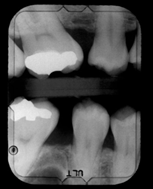Cavities: Top Common Myths and Facts

Almost every person will experience having at least one cavity in their lifetime. Many of us have our own theories about why cavities form and why some people get them more than others. In this week’s blog, we are going to discuss the common myths and facts associated with
cavities.
Top Common Myths about CavitiesGrowing up, we are often given misinformation about cavities that make us change our eating habits and lifestyles. Here are some of the most common myths regarding cavities:
- Sugar is the main cause of cavities – there is no denying sugar can contribute greatly to the creation of cavities, however it is not their fault alone. Sugars act with the carbohydrates to fuel the bacteria that grow in your mouth causing tooth decay. For the best results, clean your teeth immediately after eating sweets to minimize the risk.
- Kids are more likely to get cavities than adults – Though children are more at risk for cavities, senior citizens also have high rates of tooth decay.
- You will know if you have a cavity – People usually only notice they have a cavity if the symptoms are severe. In the beginning, the symptoms are often too mild to detect or the person with the cavity has a high tolerance for pain and may not notice the cavity until it is too late and damage has become apparent.
The best way to check if a myth about cavities is true is to speak with
Dr. Roderick Garcia, DMD in Albuquerque.
Top Common Facts about CavitiesTooth decay is the number one chronic illness in children and senior citizens. The following are facts about how cavities are caused and how they can be treated and prevented:
- Exposure to acidic foods cause tooth decay – Acidic foods like lemons and soft drinks won’t cause cavities, but they do weaken the enamel on your tooth making it prime property for a cavity to invade.
- Once a tooth is treated, the decaying stops – Once you have a cavity filled, the decaying will end and won’t be back in that spot. Especially if you continue to brush and floss your teeth regularly.
- Gaps in teeth encourage cavities – It can sometimes be difficult to clean between a gap in one’s teeth, encouraging the development of decay and bacteria to form.
- Chips and cracks in teeth make you more susceptible to cavities – Chips and cracks can create hiding places for bacteria to grow that are hard to clean. Tooth decay then begins to form, creating a cavity.
The best way to treat and prevent cavities is to brush, rinse and floss regularly. By doing this you are protecting your mouth from bacteria entering. Dr. Roderick Garcia recommends you perform your dental routine at least twice a day for the best results. Use a fluoride rinse to protect your enamel and get in the cracks and small gaps that your toothbrush cannot normally reach and make your bi-annual
appointment to see Dr. Garcia for regular dental maintenance.
Recent Posts
In recent years, more patients have been asking general dentist professionals about straighter teeth. Orthodontic treatment has come a long way in the last decades. Patients may think that traditional braces are the only option, but clear aligners and appliance therapy are also available now. When having this conversation, it is important that patients discuss…
A general dentist may recommend a mouthguard to protect the teeth from damage that can occur from teeth grinding, sports injuries, or physically strenuous jobs. Grinding can be difficult to treat, but a patient can be helped by a thin mouthguard on the upper or lower teeth to prevent friction from occurring. Other types of…
A general dentist is the dental equivalent of a primary care physician. A general dental professional is the person dental patients can go to for routine preventative care and diagnosis of any oral health problems. There are multiple benefits to establishing a relationship with a general dentist.Maintaining oral health is important for both the health…
When a patient has a cavity, a general dentist thoroughly takes out all the decayed area of the tooth and replaces it with a filling in the empty space to prevent future decay. When it comes to the type of filling, there are various options from which the patient may choose. They each have advantages…
 Almost every person will experience having at least one cavity in their lifetime. Many of us have our own theories about why cavities form and why some people get them more than others. In this week’s blog, we are going to discuss the common myths and facts associated with
Almost every person will experience having at least one cavity in their lifetime. Many of us have our own theories about why cavities form and why some people get them more than others. In this week’s blog, we are going to discuss the common myths and facts associated with 
